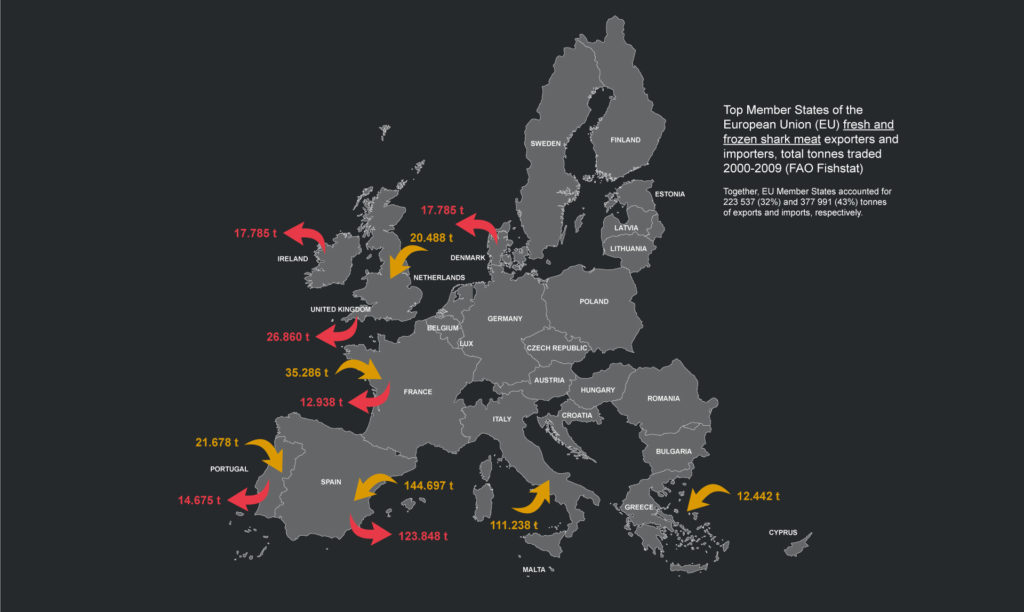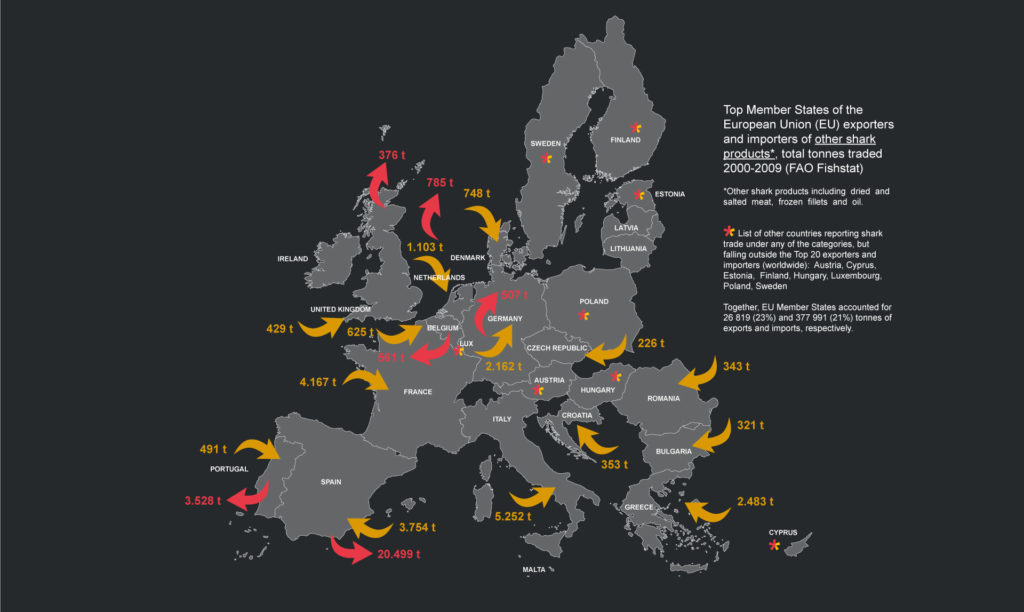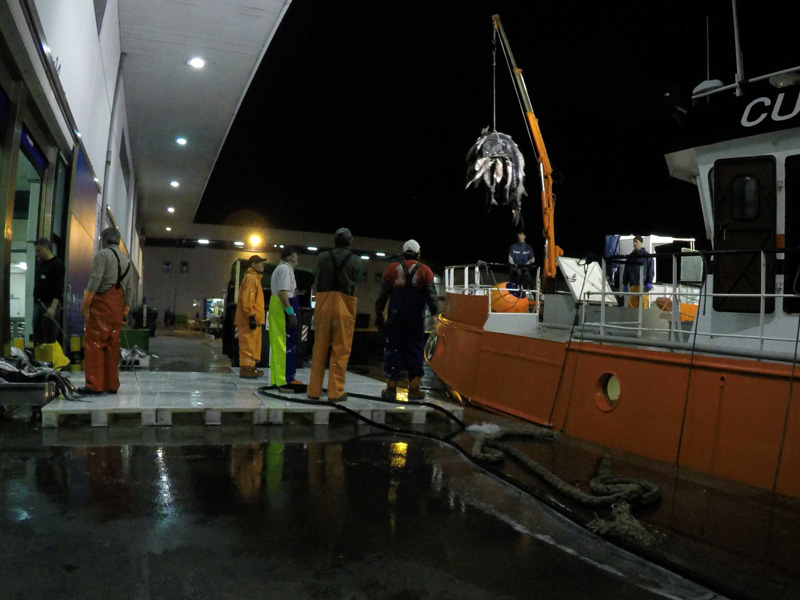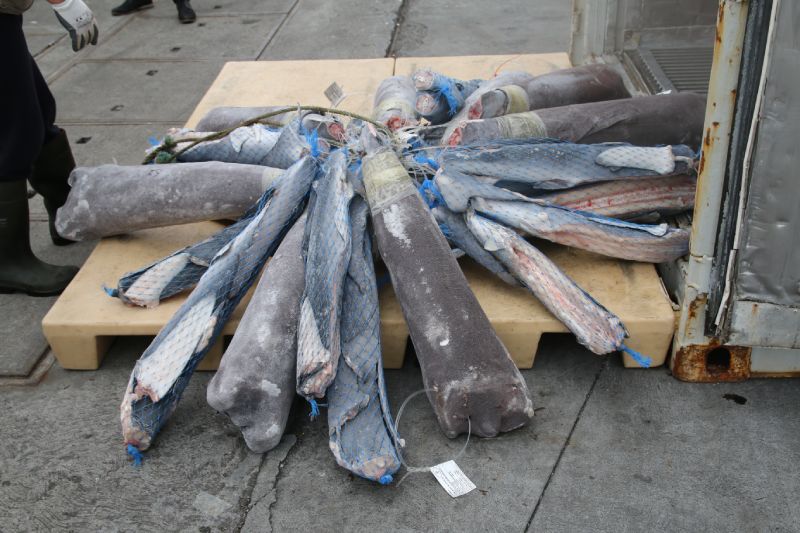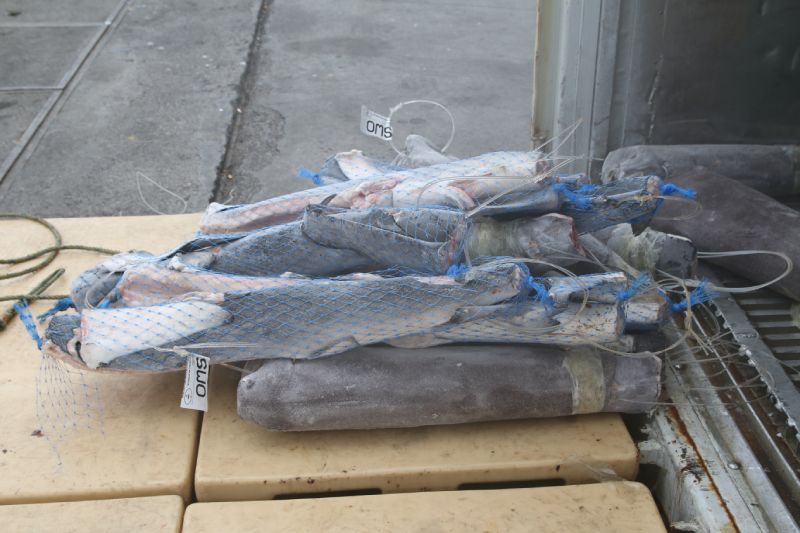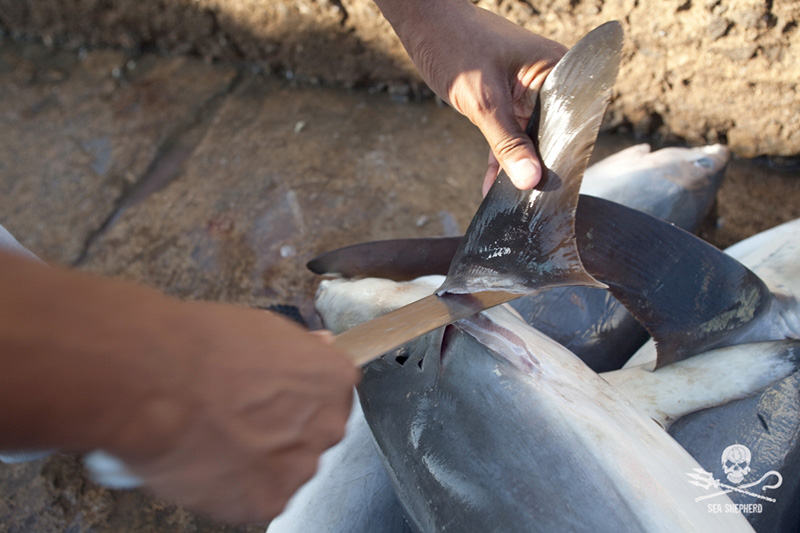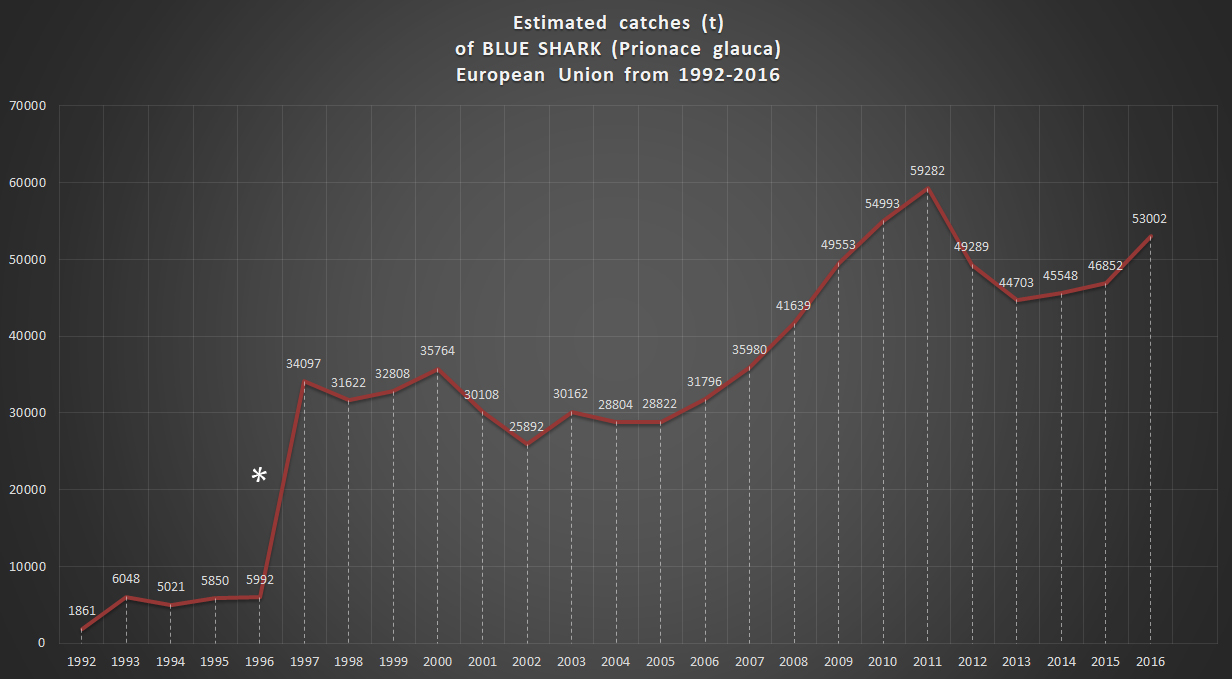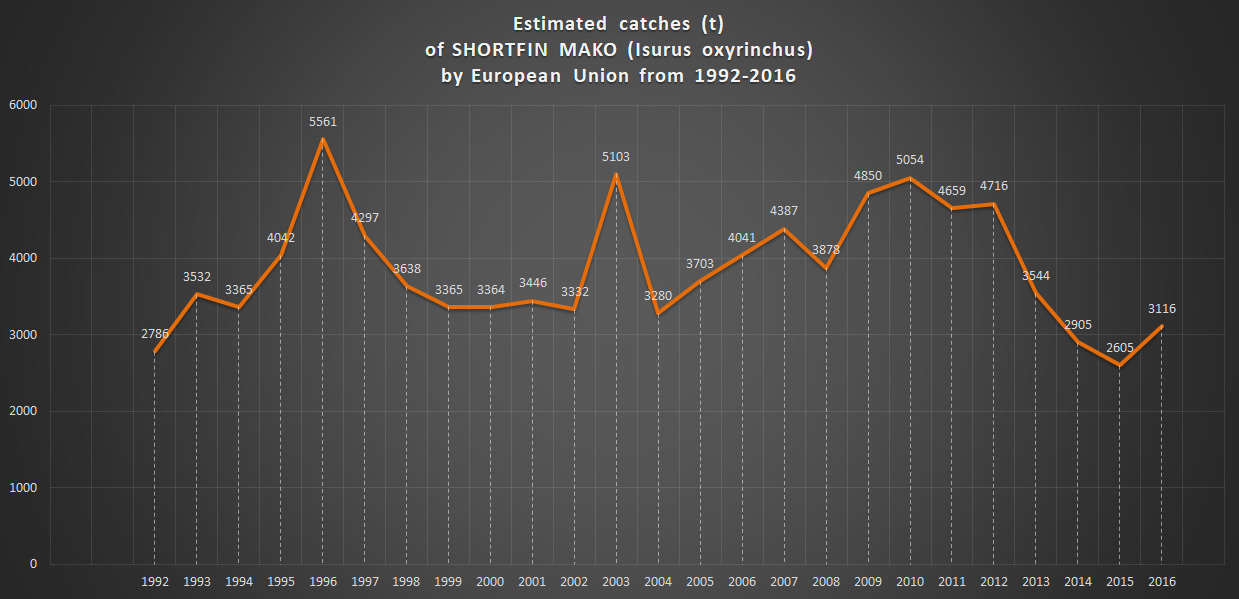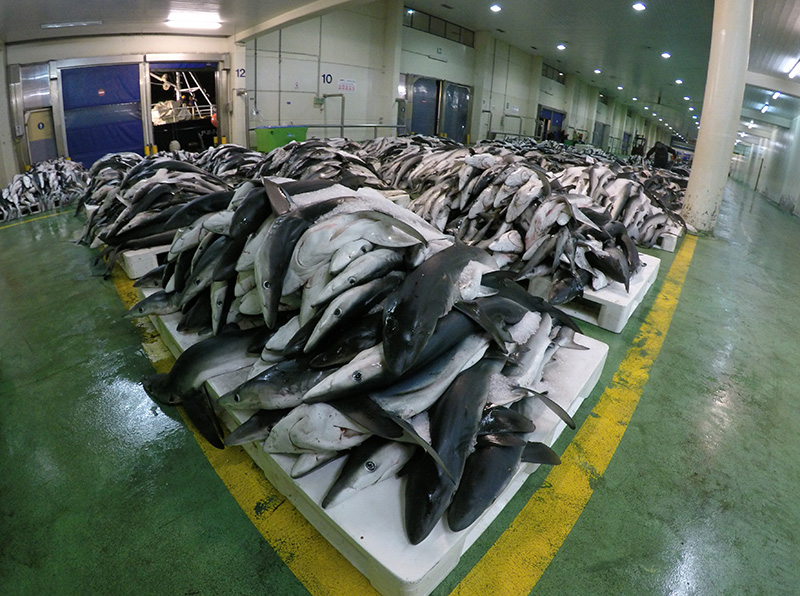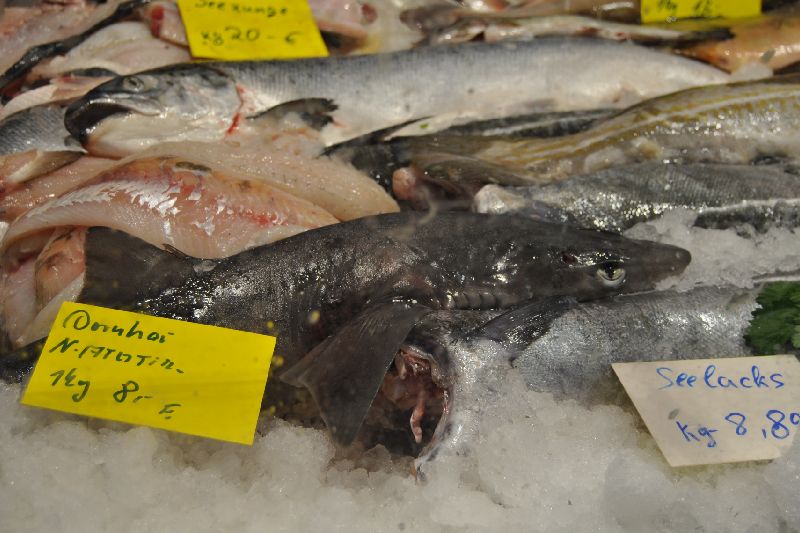Shark fishing in Europe?
The fins business is also worthwhile for Europe.
Shark fishing in Europe
Every year millions of sharks are caught in Europe. Spain, for example, is one of the leading manufacturers of unprocessed shark fins.
However, the EU regulation banning finning on fishing vessels in 2013 led to a change in the fishing industry. Until now, fishing vessels could save cargo space by cutting sharks’ fins and throwing their bodies overboard. This left more space for more valuable species such as swordfish and tuna. Now the sharks had to be landed. For a short time, the fishing volume for blue sharks decreased (2013: 44703t in the Atlantic). In 2016, the last year evaluated, the figure was 53,000 tons again. What has happened? In addition to the lucrative business with the fins, shark meat from the blue shark was now also on the market, for which there had previously been no interest. But the fishing in Europe is not only limited to Blue sharks. Other species continue to be fished as well. In 2018, European ships landed 6,018 tons of the endangered Shortfin Mako in the Atlantic Ocean. In the Mediterranean, the WWF recently found that more than half of the shark species found there are endangered.
One of the reasons: Overfishing.
But the “fins naturally on the body” regulation of the EU should actually protect the sharks from being hunted for their fins. Unfortunately, it is often not even possible to determine whether fins or shark meat is being handled: In many countries around the world, including the EU, there is no indication of whether a cargo is an unprocessed or processed part of the fish, such as fins. This makes it particularly difficult to trace which parts are transported where. Another area of uncertainty is the control figures. For the Spanish longline fleet, an independent observer rate of only 1-3% is recorded on fishing vessels. Whether really all the sharks caught are landed, as stipulated in the EU regulation, can therefore only be confirmed for these vessels.
If shark protection in Europe is to have a chance, trade in shark fins from Europe must therefore be prevented in a really effective way. That is why we are demanding: The fins must remain on the shark at all times – even when being exported!
[1] Vgl. FAO, State of the global market for shark products, S. 95
[2] Vgl. INTERNATIONAL COMMISSION for the CONSERVATION of ATLANTIC TUNAS (ICCAT), REPORT for biennial period, 2016-17 PART I (2017) – Vol. 2. Für die Berechnung der Anzahl Tiere wurde ein durchschnittliches Gewicht von etwa 30 Kilogramm pro Blauhai angenommen
[3] Vgl. WWF, Sharks in crisis: A call to action for the Mediterranean.
[4] Vgl. North and South Atlantic swordfish Spanish longline fishery; MSC Public Comment Draft Report, Volume 1; October 2016; Seite 44 pp.
Estimated catch figures of the EU countries
from 1992-2016 on the basis of Blue sharks, Shortfin Makos and Porbeagle
Source: https://www.iccat.int/Documents/BienRep/REP_EN_16-17_II-2.pdf
* Reform and opening policy in China. During this period, the Chinese economy has undergone significant growth through privatization. The trading markets have been expanded.
EU countries in comparison: Blue shark (Prionace glauca)
Areas: North Atlantic, South Atlantic and Mediterranean
2000
2011
2016
What happens to shark meat?
Trade in shark meat has increased dramatically over the last decade. This is partly due to the general increase in demand for fish. The shark meat market is more diverse and more geographically dispersed than the shark fin trade, so there is considerable potential for further expansion. [1]
Years ago regarded as an unwanted by-catch, sharks are now systematically targeted. Species such as the blue shark or the short-finned mako shark are caught without specific restrictions: No catch or size limits and no closed seasons. Spain has the largest market for shark meat and is the leading nation for shark fishing in Europe. In 2013, 48,888 tons of various different species of shark were registered as caught there, but the actual number could be significantly higher due to unreported by-catches. The meat caught from there is mainly exported to other EU countries. Spain and Italy are among the European countries with the largest shark meat market, consuming on average 40,000 tons (Spain) and 10,000 tons (Italy) of shark meat per year. [2] Most shark meat imports worldwide go to Brazil – about 20,000 tons per year, followed by Spain – about 14,000 tons per year, and Italy – about 11,500 tons per year (in 2012). [3]
According to current figures, Germany imported 296 tons of shark meat in 2014, mainly from Namibia, Vietnam and Indonesia. These countries have hardly any surveillance or controls of their fisheries. 4] The meat is sold under many different, often misleading names, such as sea eel, trout sturgeon or hornfish in the case of dogfish.
In addition to the targeted consumption of shark meat, the demand for the oil obtained from shark liver is also increasing. This is regarded as a desirable ingredient in cosmetic products such as makeup or moisturizers. [5]
[1] Food and Agriculture Organization of the United Nations, 2015: State of the global market for shark products.
[2] Chabrol, R. & June, S. I. 2015: Pelagic shark meat in Europe.
[3] Food and Agriculture Organization of the United Nations, 2015: State of the global market for shark products.
[4] Chabrol, R. & June, S. I. 2015: Pelagic shark meat in Europe.
[5] Wildaid, 2018: Sharks in Crisis. https://wildaid.org/programs/sharks/ (6.8.2019)
Import and export of shark and other shark products
in the period 2000-2009 of recorded EU members
https://www.traffic.org/site/assets/files/2585/into_the_deep_report.pdf
